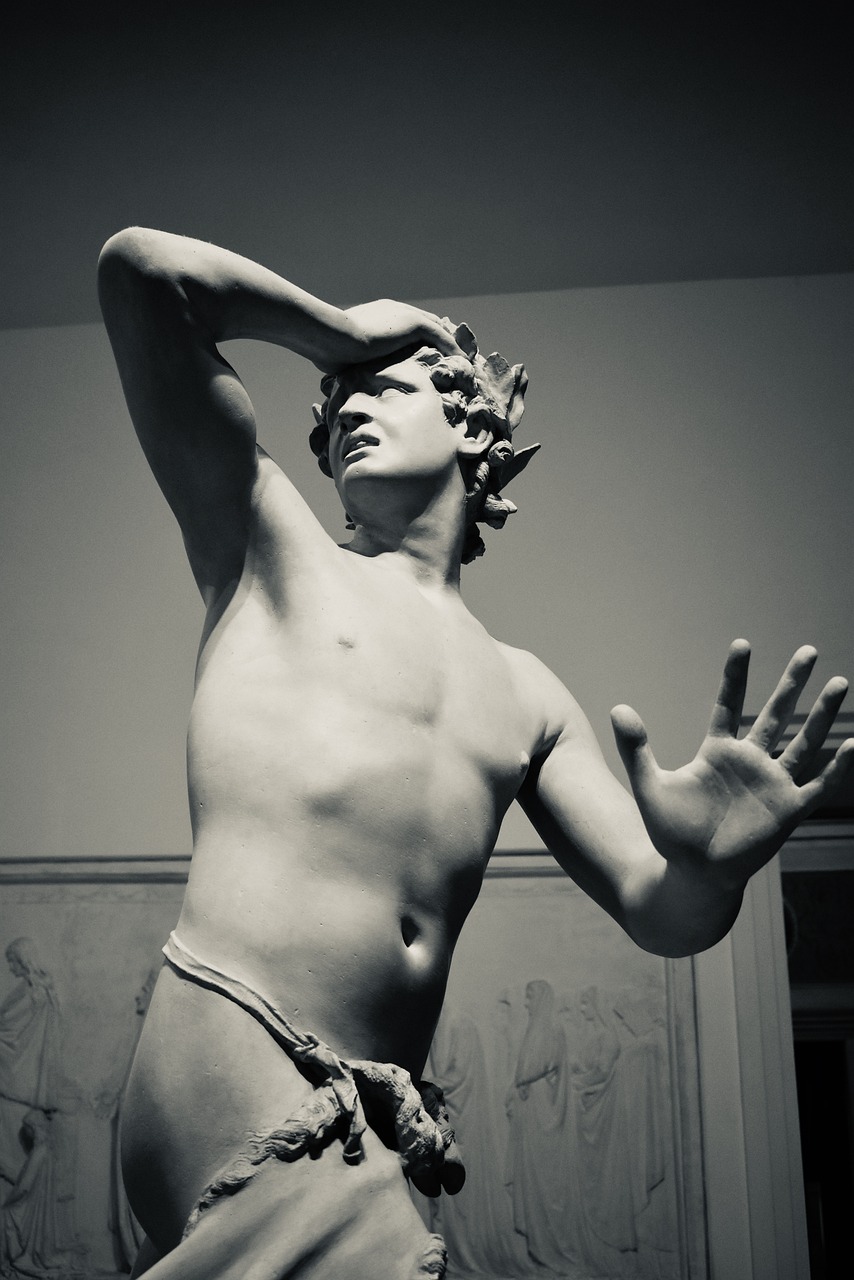The narrative of Orpheus and Eurydice has been a profound source of inspiration among ancient authors like Apollonius of Rhodes, Virgil, and Ovid, and has also found its way into modern retellings such as that of Edith Hamilton in her work, “Mythology.”
The Origins of Orpheus
Orpheus, hailing from noble lineage, was born to a Muse and a prince of Thrace. His mother bestowed upon him the extraordinary talent for music, nurtured in the culturally rich land of Thrace known for its musical prowess. Among the Thracians, Orpheus stood unrivaled, possessing a talent that even the gods could not ignore. His melodious notes resonated through the tranquil Thracian woods, enchanting everything from flora to fauna. Beasts of the wild and the very rocks responded to his music, captivated by his enchanting melodies.
The early details of his romance with Eurydice remain a mystery. However, it is evident that no woman could turn away from Orpheus’s celestial voice. Their wedding, unfortunately, was short-lived. Shortly after their marriage, Eurydice fell victim to a snake bite while walking in the meadow with her companions, leading to her untimely death. The sorrow Orpheus experienced was insurmountable, compelling him to descend into the realm of the dead in a desperate bid to reclaim his beloved.
Orpheus’s Descent to the Underworld
Determined, he thought,
“With my music, I will sway the hearts of both Hades and Persephone; I shall bring her back from the underworld.”
Orpheus embarked on this dangerous journey, a feat unmatched in the history of mankind for the sake of love. Upon entering the underworld, he strummed his lyre, enchanting every soul in that bleak expanse of silence.
He pleaded with the deities of the underworld, expressing the inevitability of death and loss that comes to all mortals. Orpheus spoke of love’s overwhelming strength, invoking memories of Proserpine to weave a tapestry of despair and yearning for Eurydice. He requested merely a loan of Eurydice until her time had come, rather than a permanent return.
The enchantment of his voice moved the hearts in the abyss, compelling even the stoic Hades to relent and grant his wish on the condition that he must not glance back at his bride until they had emerged into the light of day.
The Tragic Conclusion
As they made their ascent, Orpheus could feel Eurydice’s presence behind him. Yet, the longing to glimpse her face consumed him. Just as he neared the light, he succumbed to temptation and turned back—only to witness Eurydice lost again to the darkness, vanishing with a haunting farewell.
Desperation gripped Orpheus as he attempted to chase her down, but the gods would not allow him reentry into the underworld. With a heart shattered by loss, he returned to the realm of the living, burdened by inconsolable grief. In his desolation, he withdrew from society, drifting through the solitary wilderness of Thrace. His only solace came from his lyre—a melodious companion that serenaded the rocks and rivers, echoing his pain.
In time, a group of Maenads stumbled upon the forlorn Orpheus. In a tragic turn of events, they violently tore him apart, strewing his remains along the river, until the Muses discovered and honored his memory. They laid his pieces to rest at the base of Mount Olympus, forever ensuring that his spirit lives on through the beautiful melodies played by nightingales that sing more sweetly there than anywhere else.
An Alternate Retelling
In another rendition captured by Thomas Bulfinch, the love between Eurydice and Orpheus is depicted with equal passion. The young couple were inseparable, reveling in the joy of their shared life until misfortune struck. While frolicking, Eurydice fell victim to a serpent’s bite, leading to her swift descent into Hades. Orpheus, the son of Apollo, a god known for his musical prowess, expressed his profound sorrow through haunting melodies. Driven by love, he ventured into the underworld, where his music touched the heart of Hades, ultimately granting him permission to reclaim Eurydice—under the strict condition of not looking back.
Alas, in a moment of doubt, Orpheus turned to glimpse his wife, leading to her irreversible return to the shadows of immortality. Forever mournful, his spirit is said to inspire musicians who capture the essence of longing through their art.



